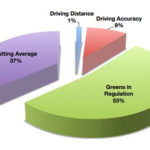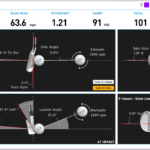A Plan for Lower Scores
by: B. J. Hathaway
Lower scores, enjoy the game, more distance, be more consistent: those are probably the four most common “goals” that we hear from golfers on the lesson tee.
Unfortunately that is about the end of the story for most folks because there is no plan to bridge the gap from goal to reality. Imagine that a friend says they really want to lose 10 pounds in 4 weeks. You ask them how they plan to do that and they answer, “I don’t know, I just want to.” You would shake your head and say “good luck” because never did they mention things like exercise, better diet, or tracking calories. They don’t really want to do anything but talk and wish and dream.
“A goal without a plan is nothing but a dream.” Herm Edwards
If you did nothing more than start with a simple swing evaluation form, it would be a great beginning. You see the first step in moving towards a goal is analysis…you need to know where you are before you can go somewhere else.
How would you honestly rate your game at driving, irons, chipping, pitching, bunker, putting and course management? How about swing plane, club face control and solid contact? If you don’t know or lie to yourself how will you ever change anything?
Let’s use our imaginary student Joe who comes for a series of lessons. Joe provides his swing coach with the information that his average score is 97, he hits 38% of fairways, 32% of greens and averages 39 putts per round. Joe knows this because he keeps his own stats and wants to measure his game. Joe also know that it’s not possible for any golf professional to remove 10 strokes in a single lesson without an eraser.
Joe then fills out an honest self-evaluation using the form and begins to realize that his short game is below average, he has an inconsistent swing path and he doesn’t manage his game very well on the course. Through an honest analysis and working with his coach on specific points the coach can nearly guarantee Joe 10 shots off his score in just a few months. Now his lessons are more productive and targeted towards very specific mini-goals that cut strokes.
And Joe now feels a sense of purpose in his practice and can’t wait to get off of work and head to the range and practice his drills and short game. Joe has new purpose and direction because he has a plan and structure…something we all need.










